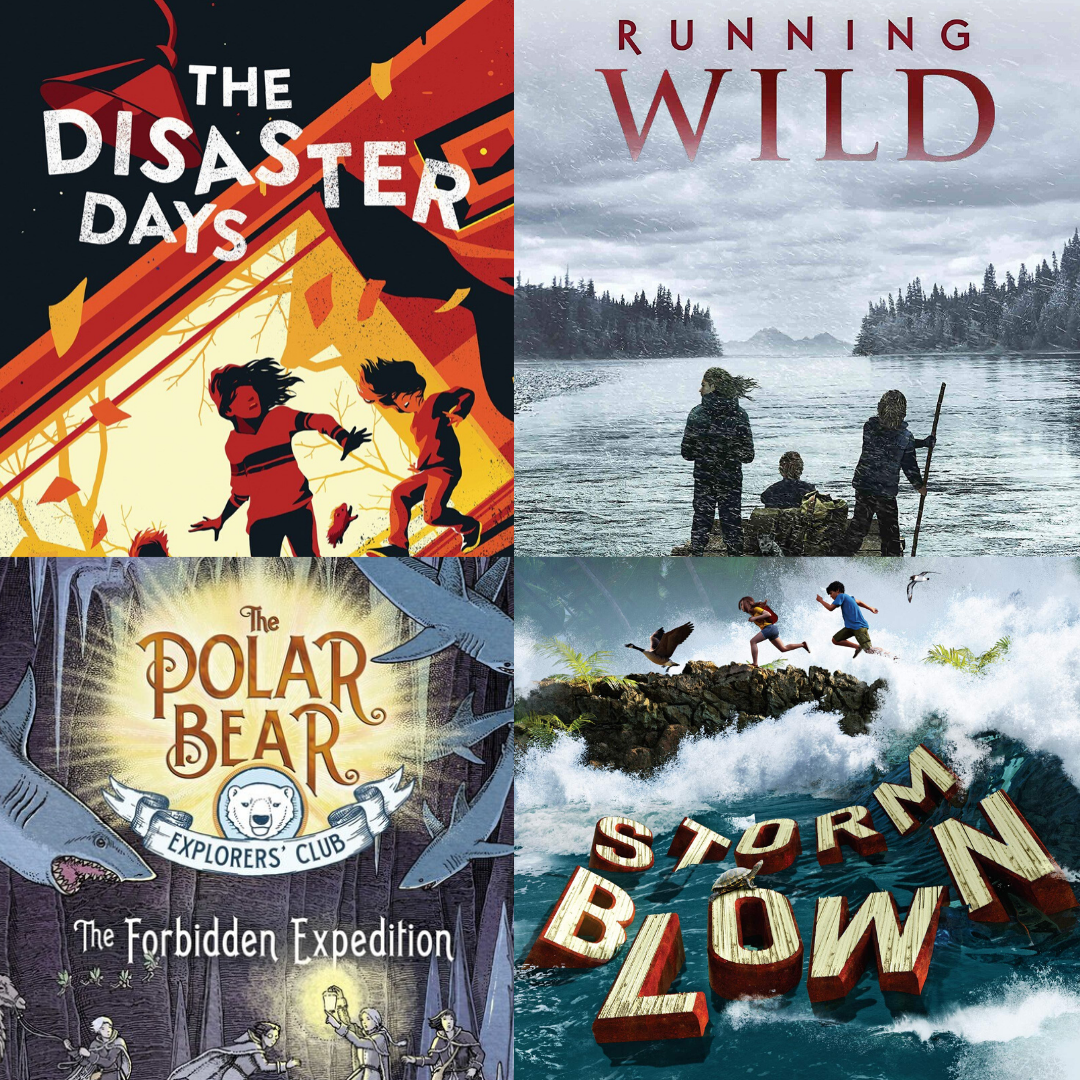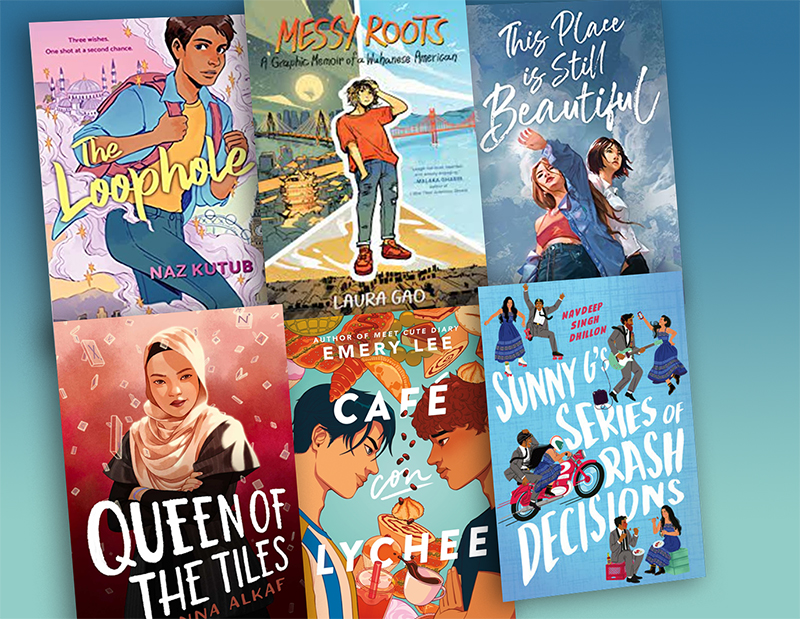Working with Youth Who Live in Poverty
I don’t want to talk about the statistics – they’re depressing. The truth is, unless you work in an extremely posh community, as a youth librarian you come into regular contact with patrons who are living in poverty. If you’re anything like me, you have never been, nor will you likely ever be, in danger of living below the poverty line.
 |
| Infographic and Statistic from WorldVision.org |
All of my professional library experience has been as a school librarian, and I have a convenient gauge for determining what percentage of my population lives in poverty (relatively) – the percentage of students who qualify for free or reduced price lunches can give me some indication. Many of you who work in public library settings are well aware of the percentage of your residents who live in poverty, although your regular patrons may be more or less likely to reflect those statistics.
ADVERTISEMENT
ADVERTISEMENT
Just for background, in my first position, in an inner city elementary school, 97% of my school population was receiving free breakfast and lunch. I learned a lot those three years. I liken it to the swimming lesson method of throwing someone in the water so they have to learn to swim. I did, eventually. At my second school, only 65% of our students qualified for free or reduced price meals, and it was a revelation. If I called a student’s name in the hallway, he or she would stop and look at me. It was miraculous! I was also trained with materials developed by Ruby Payne and centered on her book A Framework for Understanding Poverty, which I highly recommend. Finally, in my current location, we hover around 40% or our students qualifying for food assistance.
There are two main things I’ve learned about my students who are living in poverty that have led me to change or adapt the way I do things to better reach them. The first is that often they are automatically mistrustful of adults. In comparison to most children, who need to be warned about ‘stranger danger,’ a large percentage of my students who live below the poverty line start from the position of mistrust. Their trust must be earned – and it can take a while. I used to be discouraged when one of these students would rebuff my attempts to recommend books or help find information. I do still find it discouraging, but I don’t take it personally. Now I just assume that I haven’t earned their trust yet, and continue on. I had a student this past year who took two quarters to come around, but we finally bonded over our mutual love of the Klise sisters “Regarding the…” series. (She assumed that she was too old to like those types of books and that I would discourage her from checking them out.) If you have students or patrons like this – don’t give up!
 |
| Infographic found at Educational Technology Guy |
The second thing I learned (very quickly) about my students who come from poverty is that they lack access to some of the basics in life that we take for granted. No, I’m not talking about books, although they often lack access to those. Think more basic…I’m talking about things like lotion, tissues, and bandages. When your parents are working three jobs to pay the electric bill and put food on your table, there some things a lot of people consider essentials that have to be sacrificed. I’m not sure how this would work in a public library setting, but I keep a large bottle of inexpensive, unscented lotion at the circulation desk (next to the ‘free pencil’ jar.) Several times a week I have students ask, “Why do you have lotion here?” I simply answer, “In case you need lotion.” I know the ones that proceed from lotioning their hands to doing their elbows and knees will be back for more, so I start by learning their names and interests so I have books on hand to recommend to them. I keep a stock of other items in my office – chapsticks, hair bands, etc., that I find on clearance. It may sound silly or obvious, but it was a revelation to me that this was a way into my students’ lives. If my goal is to encourage them to read, to enjoy the pursuit of knowledge for their own information, I will use whatever is at my disposal to become that influence in their lives.
The statistics of youth living in poverty in our country can be disheartening. There are many ways we, as citizens, should be working to eliminate this very damaging reality. Fortunately, as librarians, we have access to impact individual lives, and that is where I choose to start.
Filed under: Poverty, Things I Never Learned in Library School
About Karen Jensen, MLS
Karen Jensen has been a Teen Services Librarian for almost 30 years. She created TLT in 2011 and is the co-editor of The Whole Library Handbook: Teen Services with Heather Booth (ALA Editions, 2014).
ADVERTISEMENT
ADVERTISEMENT
SLJ Blog Network
One Star Review, Guess Who? (#202)
Review of the Day: My Antarctica by G. Neri, ill. Corban Wilkin
Exclusive: Giant Magical Otters Invade New Hex Vet Graphic Novel | News
Parsing Religion in Public Schools
ADVERTISEMENT








I have only worked in Title I schools. My first experience was eye-opening… Many of my students didn't have gloves, food at home, or even pants that fit (and those were the fixable problems!). My newest school is 100% F/R lunch. I'm often asked why I would want to work in schools like this when I could get a job anywhere… I respond to them by simply stating that my students need me and I need them. And as much as they have learned from me, I have learned from them the importance of the littlest things in life.
It's kind of the same way I feel about working with middle school students. If you enjoy them, if you want the reward of making a difference,you should work with them. To each his/her own. I have friends who work with the elderly who feel the same way about them that I feel about my students.
Thanks for being willing to get in there!
It's easy to forget that reading is not number one on a priority list when you're struggling to meet much more basic needs. I love how you are reaching out to meet some of those needs in an easy way. It's not that different from public libraries being places where adults in need can access job information — or just warmth. Thanks for this really thoughtful reminder!
In Rotters by Daniel Kraus, there is this long scene where the main character, Joey, is so hungry (he hasn't eaten in like 3 days) that he just Can. Not. Focus. at all on anything else but the PURE PAIN in his belly caused by hunger. It is one of the most amazing things I have read. Hungry kids can't learn. Hungry kids can't think about doing anything but finding a way to stop being hungry.
I work in a public library that is within walking distance of several low-income housing communities. Many of our regular teens come during the school year to hang out with friends but also to work on school assignments. I keep a look out for sales and collect donations of folders, notebook paper, spiral notebooks/composition books, pencils, glue sticks, note cards, highlighters, magazines, and occasionally posterboard. I don't make a big deal that I have these items, but the teens who really need them know I try to keep these things on hand for them to use. If it comes down to them being unable to complete an assignment or getting counted off on an assignment because they just do not have access to these types of supplies, I would much rather help them along the way with a short trip to the dollar store. It does go a long way in building trust. Thank you for highlighting this issue!
Fantastic idea! For some students, these items are just beyond their reach, and so essential to being able to complete assignments.